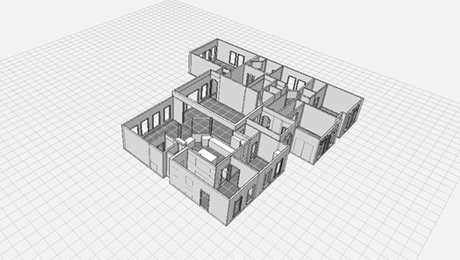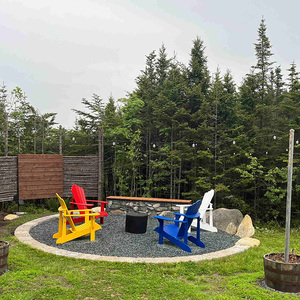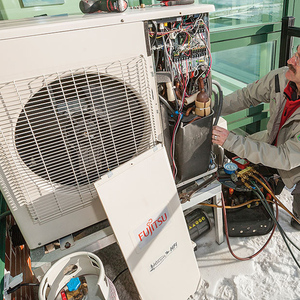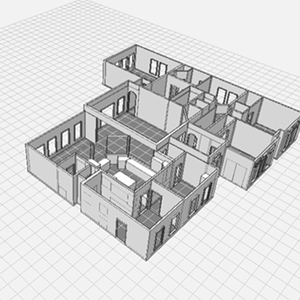To winterize my summer place in Maine, I have been draining all of the water and replacing the water in the drain traps with regular antifreeze. I am having the plumbing replaced in the bathroom, and my plumber suggested that using RV antifreeze is much simpler and better. He suggested adding the antifreeze to the drains without first emptying them. In addition to the drains, he adds the antifreeze to the input hoses to the washing machine, the pipe with the shower head, and the shallow well pump.
I think the RV antifreeze should be much better than what I have been doing, particularly in the spring when I turn the water on. Now I have to go around and drain out the antifreeze before running the water. With the RV antifreeze I believe you can just turn on the water and flush it down to the septic system without harm.
Has anyone used this method? Does it really work well without first emptying the traps?
Thanks for your comments.
Allen



















Replies
Absouluty I winterize a lot of cottages and its better safer and cheeper
Its a little cheeper so I get pretty liberal with it better safe than sorry just think 50/50 mix in your mind plus dumping it in the drain will push some water out I would think
The washing machine is a good idea and if you have a dishwasher too just try to get some through the lines run a cycle that requries it to pump water cause thats where you need it
I usually try to set up the system to where I can drain whatever I can, then fill the system with air and blow everything out with air pressure, but never had a frozen pipe anywhere since I stoped relying on gravity and using air, but almost every system is a little different with different steps to be efficent
Edited 5/31/2008 10:41 pm ET by danno7x
I winterize my sister's place where it gets down to zero and the house is on pilings and pretty much unprotected underneath.
I use RV antifreeze (non-toxic and will not hurt septic/sewer systems). I turn off water, flush toilet, dip almost all of the water out of bowl, fill to a couple of inches above inside of trap. For shower I use a plunger to sort of blow the trap and pour about two cups in. Washing mach I unhook the hoses, let them drain and turn it on set to warm, then blow it with either compressor or sometimes a leaf blower/shop vac.
Pour about 1/2 gal in and bump the pump over to circulate. Dishwasher I usually unhook the supply and cycle it through. I made a cheater plug to actuate the fill solenoid and blow through the unhooked fill line. The cheater is just a cut off cordset with a couple of flat connectors to plug in.
I unhook line to icemaker and usually do not do anything to the line but do the same cheater thing to the fill solenoid. She has one of the kitchen sink faucets with the pull out hose in the main spout. I usually use the shopvac to suck it dry as they have a check valve/anti siphon and will not blow back.
Her place was built to be winterized and when you turn the water off and go uner the house and open two valves the lines will pretty well drain. I usually give it a little shot from blower (ones of the dual purpose shopvac type) or compressor from each faucet/fixture. Lately I have been taking the Hitachi twin stack up to do it.
I try to give each trap a blast and then pour in antifreeze. There was a lady from an appliance place that did it for $50, can't remember if she left it ready to go again but the way I do it I like to hook everything up in the spring and check it out. Never have any ploblems. Also drain water heater and leave it open. Leave notes to remember what needs to be done to put back in service.
Probably way too anal.
Takes me about 45 min. Unfortunately an hour drive. We usually try to time it with a last weekend getaway.
ONLY RV-Anti-freeze, and please tell any neighbors to stop using regular stuff.
"RV" antifreeze is typically an already diluted solution of propylene glycol. If there's already water in the traps, etc., it's possible to get a solution that is too weak, and will freeze.
"Sierra" antifreeze is a similar antifreeze, but is not already diluted.
Propylene Glycol has two advantages over traditional antifreeze solutions: it is far less toxic (I's one of the major ingredients in some soda pop) and it actually inhibits corrosion - quite the opposite of the usual stuff.
I appreciate everyone's time and suggestions.
It is pretty clear that RV antifreeze is much better than the old stuff both for avoiding hazards and to reduce the work and mess of reclaiming the stuff in the spring.
However, I am still a bit concerned about using it in the supply lines. My wife is concerned that it will stain the clothes if I put it in the washing machine. Does it have a taste or color that needs to be flushed out in the spring?
If I add it to the drains without first draining the traps, how can I assure myself that I have a sufficient concentration that it will not burst the pipes. Does it displace the water because it is heavier, or does it mix when you just pour it in the drain?
Thanks,
Allen
Like I said Ive never had problems dumping it in the drains, I dont have the time or the patince to empty all the traps--sinks, washer, showers, ect... Im not afaid to be liberal with it. Id say for an average camp with two sinks, toilet, a shower and maybe a washer or something else I would use about two and a half gallons just to be safe
I always pictured it pushing water out as I dumped antifreeze in, Id dump maybe two cups or up to half a gallon in just to feel good
Run the washer or dishwasher empty in the spring for one cycle, no problems. Its just important to get the antifreeze through the pump so dump some in the line, turn the machine on look for it to come out inside the machine--done. No one has ever complained, it always seemed very nontoxic to me
The only problem I ever encounterd was the occasiontal water line in the ceiling that didnt drain and exploded in the spring. Thats when after talking to others I started to put air in the system and systematicy(?) blow out the lines, then there is no doubt of water hanging out. I dont know how involved the pluming system at your sisters is but if you have specfic questions please ask.
For toilets I use a plunger to push most of the water through then add antifreeze, If it apperars there is still more water than I feel comfrotabel with Ill scoop it out with a dixie cup or something till the water level is below the small hole in the toilet.
Im sure you know how It can be a PITA to wait for the hot water tank, air pressure behind it really helps, espically if sedamete(?) in the tank screws with the drain hole
I guess I said more than you really asked but about five years ago we started closeing about 70 camps and only problems that ever came up were before we used air or certian things that werent thought out like check valves or water filters can mess with ya, but I think we finally figured everything out
I guess your biggest question is about the antifreeze hanging out inside the stuff--run it through empty once and dont worry about it never had that type of complaint
Edited 6/1/2008 10:13 pm ET by danno7x
Thanks,
I realize that I sound paranoid about this, but leaks in the spring are no fun. It is also a lot of work the way that I have been winterizing it.
Thus far I have been draining all the supply lines removing about 8 plugs and blowing out the lines; removing the water filter; disconnecting the washing machine and tipping it over to empty it; disconnecting two pumps and draining them; pulling the suction lines from the lake and from inside the shallow well; pumping the toilet dry before filling it with antifreeze; emptying all of the other traps before adding the antifreeze and capping the open lines to keep out bugs etc.
I would like to save as much effort as I can and do it with the RV antifreeze. Pouring in antifreeze without opening or pumping the traps would make a significant improvement. However; I would like to be sure that I am still doing a reliable job. Your experience is very helpful. Thanks again.
Allen
Your plumber is right on.
Welcome to the
Taunton University of Knowledge FHB Campus at Breaktime.
where ...
Excellence is its own reward!